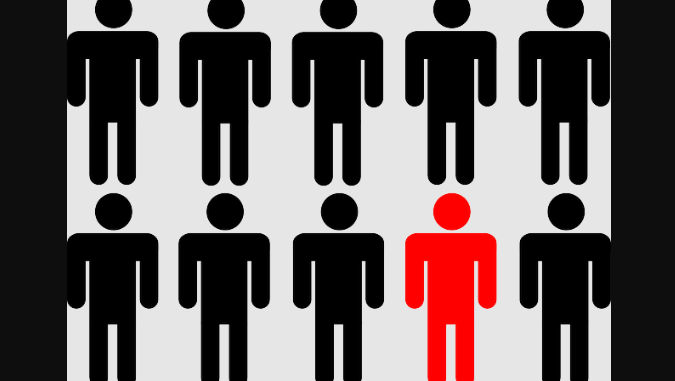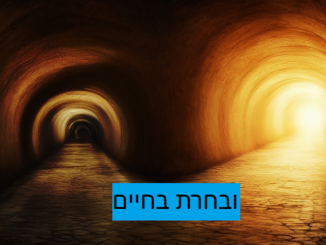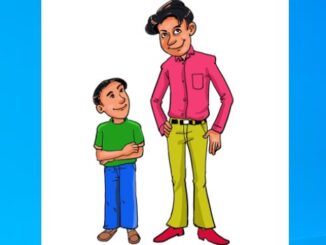
The world is divided into two main types of people, the followers and the leaders.
99% of people in the world prefer to be followers, to do what everyone else does. This is known as the herd-mentality or Sheeple meaning: people who follow everyone like a herd of sheep.
The rest of the 1% are the leaders, who are known as the one-percenters. These are people who are at the top one percent of society for their abilities, self-control and motivation.
The one pecenters are people who follow the golden rule of “Early to bed and early to rise, makes you healthy, wealthy, and wise” as well as “Spend Less and Save More.”
A person who goes to bed early and wakes up early will lead a more successful life. A well-rested person can think clearly, will not get flustered when things get tough, and has strong self-control not to make impulsive investments, purchases, and decisions.
The way to become one of the top one-percent in society is by stopping to follow trends and the masses.
Every successful person is busy making lists of pros and cons before making any decision in life or business.
Best decisions are made when you remove your bias, such as your immediate needs or wants, in order to see things from different angles and points of view. Do research on why you should or should not do the specific thing. Spend more time on big decisions.
The more life-altering a decision is, the more time you need to spend on contemplating the pros and cons of the decision.
By doing so, by taking the time to make lists of pros and cons, you eliminate surprises of unknown and/or regret if the outcome is different than you expected.
If you find yourself wanting to move somewhere, open a business, or invest in something because everyone is doing so, rethink it, It’s usually not the correct decision.
Discuss every decision with your spouse, as the Torah says a couple is Ezer Kenegdo, a good spouse sees things from another point of view and will help you get a more clear picture of the situation. Speak with experts in the field. The more you know, the more questions you can ask, in the end you can make the best educated decision.
When it comes to medical issues, one cannot make their own decisions if he is not a trained medical expert. In such cases, one should go to several experts for opinions and do what the majority of doctors recommend.
However, when it comes to with investing in anything, ask the experts, but, you have to make the final decision, don’t follow just because the experts said so and make sure you understand the decision.
When buying a home, ask lots of questions from neighbors about the house and neighborhood, (remember, when you want something such as a home, very much, you tend to see only the good not any flaws) ask experts about the risks and expenses, but make your own decision in the end.
The Torah says: Perkia Uvos chaper 4:1
איזה הוא חכם – הלמד מכל אדם We need to learn from everyone, from some people what to do and from others what not to do. The Torah does not say, who is smart one who follows everyone, but rather one who observes and learns from others. One can learn from others mistakes so that they do not do the same.
Experts in every field do studies all the time in order to learn from people so they can make better decisions for themselves. This is the Torah way of doing things.
Don’t rush with decisions.
Don’t just follow the crowd,
Don’t let your heart rule your mind.
When it comes to the Torah, we follow just because Hashem said so. In every other area use your brain to understand, ask good questions and then decide.
Daven and ask Hashem for help in making the correct decisions every day of your life.
When we wanted to move away from New York, to a warmer climate, we researched Florida. We drove down there and looked at the job opportunities. We saw there was a lack of Kosher hotels and restaurants in the Haimisha neighborhood. Furthermore, we discussed it with a man who was looking to invest in the hotel industry, and he was willing to put up the money if we ran the place.
Although this seemed like the prefect opportunity to jump at, we continued researching and looking at it from all angles, not letting the spirit of excitements cloud our judgment. We have seen people with herd-mentality jump at such business ventures, putting in lots of money, time and hard work only to suffer the consequences later on.
While driving around and looking at different options, we asked ourselves the question: Why is there a lack of hotels, after all, many frum people vacation in this neighborhood.
We found a small boutique hotel that used to have a kosher restaurant but had closed, this raised a red flag. What was the reason for the lack of a good restaurant and hotel in this area. Why would a restaurant, with a good hechsher, close down?
We then went to meet locals and asked them the hard questions. The answers were shocking, politics were involved. Local Rabbis were paid off not to give hechsher to new local businesses, in order for the existing business to keep the monopoly and the high prices. We discovered that everyone who tried to come into the space was threatened and destroyed, even when they put up a brave fight.
After hearing how Rabbis are in the pockets of local business people for money, instead of following the Torah and giving hechsher to all stores that are kosher, we decided to do what is right and what Hashem instructed all his children to do, leave America and all other countries and their bad practices behind and live in Israel, with the God of Israel and the Torah of Hashem. America fit the bill of Sodom. We moved to Israel to be with Hashem and His children who follow His laws. In Israel, Rabbis who give the hechshers are paid by the government, not by people running the shops.
In Israel, we are close to Hashem, we see His blessings every day as is written in the Torah, and the weather is also stunning year round. What a zchus. Thank you Hashem for leading us to Your Home. May the rest of our family merit to join us in Hashem’s home very soon without pain or suffering.


